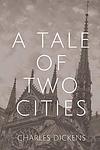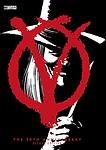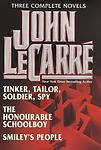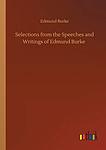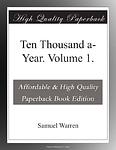The Greatest "Political, London" Books of All Time
Click to learn how this list is calculated.
This list represents a comprehensive and trusted collection of the greatest books. Developed through a specialized algorithm, it brings together 300 'best of' book lists to form a definitive guide to the world's most acclaimed books. For those interested in how these books are chosen, additional details can be found on the rankings page.
Genres
The "Political" category of books encompasses works that explore the theory, practice, and history of government and politics. These books may cover topics such as political ideologies, political systems, political institutions, political movements, and political leaders. They may also examine the relationship between politics and other areas of society, such as economics, culture, and international relations. Political books can be both informative and thought-provoking, offering readers insights into the complexities of the political world and the challenges of governing in a democratic society.
The "London" category of books encompasses stories that are set in the city of London, England. These books may explore the history, culture, and people of the city, or they may use London as a backdrop for fictional tales of love, mystery, and adventure. From classic literature to contemporary fiction, the "London" category offers a diverse range of books that capture the essence of this iconic city.
Countries
Date Range
Reading Statistics
Click the button below to see how many of these books you've read!
Download
If you're interested in downloading this list as a CSV file for use in a spreadsheet application, you can easily do so by clicking the button below. Please note that to ensure a manageable file size and faster download, the CSV will include details for only the first 500 books.
Download-
1. Nineteen Eighty Four by George Orwell
Set in a dystopian future, the novel presents a society under the total control of a totalitarian regime, led by the omnipresent Big Brother. The protagonist, a low-ranking member of 'the Party', begins to question the regime and falls in love with a woman, an act of rebellion in a world where independent thought, dissent, and love are prohibited. The novel explores themes of surveillance, censorship, and the manipulation of truth.
-
2. The Golden Notebook by Doris Lessing
The novel centers around a woman named Anna Wulf, a writer who keeps four notebooks, each representing a different aspect of her life: her experiences in Africa, her current life in London, a novel she is writing, and her personal experiences. As Anna's mental state deteriorates, she attempts to unify her fragmented self in a fifth notebook, the golden notebook. The novel explores themes of mental breakdown, communism, the changing role of women, and the fear of nuclear war.
-
3. White Teeth by Zadie Smith
This novel follows the lives of two friends, a working-class Englishman and a Bangladeshi Muslim, living in London. The story explores the complex relationships between people of different races, cultures, and generations in modern Britain, with themes of identity, immigration, and the cultural and social changes that have shaped the country. The narrative is enriched by the characters' personal histories and the historical events that have shaped their lives.
-
4. A Tale of Two Cities by Charles Dickens
Set against the backdrop of the French Revolution, this classic novel explores themes of class struggle, sacrifice, and resurrection. The narrative follows the lives of several characters, including a dissipated English lawyer, a man who is a long-term prisoner in the Bastille, and a woman who becomes embroiled in the political turmoil of the time. The story is a riveting tale of love and sacrifice, with the infamous guillotine looming in the background, symbolizing the violence and unrest of the era.
-
5. A Vindication of the Rights of Woman by Mary Wollstonecraft
This influential work from the late 18th century argues passionately for the education and societal recognition of women. The author asserts that women are not naturally inferior to men, but appear to be only because they lack education. She suggests that both men and women should be treated as rational beings and imagines a social order founded on reason. The book is considered one of the earliest works of feminist philosophy.
-
6. The Day of the Jackal by Frederick Forsyth
"The Day of the Jackal" is a suspenseful thriller that revolves around an unnamed and highly skilled professional assassin who is hired by a French dissident paramilitary organization to kill Charles de Gaulle, the President of France. The novel intricately details the meticulous preparations of the assassin, his many disguises, and his method of operation, while also depicting the desperate efforts of the French police to uncover his identity and prevent the assassination, leading to a tense cat-and-mouse chase across Europe.
-
7. The Secret Agent by Joseph Conrad
"The Secret Agent" is a dark political satire set in London in the late 19th century, revolving around a secret agent who is also a shopkeeper, his anarchist friends, and his family. The story unfolds as the agent is coerced by his foreign employers to orchestrate a bombing in a bid to provoke a political response, but the plan goes disastrously wrong, leading to tragic consequences and a deep exploration of themes such as anarchism, espionage, terrorism, and betrayal.
-
8. The Way We Live Now by Anthony Trollope
The book is a satirical analysis of the moral corruption in London during the 1870s. It centers around Augustus Melmotte, a fraudulent financier, who moves his family to London in an attempt to climb the social ladder. His daughter, Marie, falls in love with Sir Felix Carbury, a penniless playboy, while his wife is desperate to be accepted into London society. The book explores themes of wealth, power, love, and greed, and is a biting critique of the era's obsession with status and money.
-
9. On Liberty by John Stuart Mill
This influential philosophical work explores the concept of personal freedom and societal limits, arguing that individuals should have the right to act as they want, provided they do not harm others. The book elaborates on the nature and limits of the power that can be legitimately exercised by society over the individual, and champions individuality and nonconformity. It also discusses freedom of speech, asserting that all opinions should be openly expressed to prevent any single viewpoint from becoming dogma.
-
10. The Line of Beauty by Alan Hollinghurst
Set in the 1980s during the era of Margaret Thatcher's conservative government in Britain, this novel follows the life of a young gay man named Nick Guest. Coming from a middle-class background, he moves into the home of his wealthy friend's family and becomes infatuated with the opulence and power of the upper class. As he navigates his way through this new world, he also explores his sexuality, all while dealing with the societal and political implications of the AIDS crisis.
-
11. What a Carve Up! by Jonathan Coe
This satirical novel follows the story of the Winshaw family, a wealthy and corrupt British family who have a significant influence on British society in fields such as politics, business, media, and the arts. The narrative is presented through the eyes of a commissioned biographer who is trying to make sense of the family's history and their impact on society. As he delves deeper into the family's affairs, he uncovers dark secrets and becomes entangled in a complex web of deceit and murder.
-
12. The Diary of Samuel Pepys by Samuel Pepys
"The Diary of Samuel Pepys" is a detailed personal account written by a 17th-century English naval administrator and Member of Parliament. The diary offers an intimate look at life in London during a time of great historical significance, including the Great Fire of London, the Great Plague of London, and the Second Dutch War. Pepys' entries provide keen observations on politics, social customs, and personal relationships, making it an invaluable primary source for understanding the period.
-
13. On Beauty by Zadie Smith
This novel is a contemporary, multicultural exploration of family life, love, and identity. It follows the lives of two mixed-race families, the Belseys and the Kipps, who are linked by their shared professions in academia and a complex web of marital and extramarital relationships. The story is set against the backdrop of Wellington, a fictional New England town, and explores themes of race, class, and cultural clash. It also delves into the world of academia, examining the politics and conflicts that arise in that environment.
-
14. V for Vendetta by Alan Moore
"V for Vendetta" is a dystopian graphic novel set in a future totalitarian England. The story follows a mysterious, anarchistic vigilante known only as "V" who wears a Guy Fawkes mask and seeks to overthrow the oppressive government. The novel explores themes of freedom, oppression, and the power of ideas, as well as the moral complexities of vengeance and violence. It also delves into the personal journey of a young woman named Evey, who becomes V's unlikely ally.
-
15. Phineas Finn by Anthony Trollope
"Phineas Finn" is a novel about a young Irishman who moves to London to become a politician. Despite his lack of experience, he quickly rises in the ranks due to his charm and charisma. However, he struggles to balance his political career with his personal life, particularly his romantic relationships with several women. As he navigates the complex world of politics, he must also grapple with moral dilemmas and the consequences of his actions.
-
16. Smiley's People by John le Carré
In this espionage thriller, a retired British intelligence officer, known for his bespectacled and unassuming demeanor, is called back into action when one of his former assets, a Soviet general, is found murdered. The investigation leads him across Europe, rekindling old rivalries and uncovering a complex web of betrayal and deception. As he delves deeper into the case, he must confront his own past and a formidable Soviet spymaster, ultimately leading to a high-stakes game of intelligence and counterintelligence, where the stakes are not just personal, but have far-reaching implications for the security of the West.
-
17. Areopagitica by John Milton
"Areopagitica" is a powerful 17th-century polemic against censorship and a passionate defense of the freedom of speech and expression. The author argues against the Licensing Order of 1643, which allowed the British government to censor literature and other forms of expression. He asserts that censorship is a form of tyranny and that in a true republic, freedom of thought and discussion should be promoted, not suppressed. The author also contends that exposure to a wide range of viewpoints, including those that may be false or harmful, is necessary for intellectual and moral growth.
-
18. Three Guineas by Virginia Woolf
The book is a passionate treatise on the oppressive nature of patriarchy and the societal mechanisms that perpetuate war. Through a series of letters responding to a man's request for a donation to prevent war, the author delves into the interconnectedness of gender inequality, education, and militarism. She argues that the education and empowerment of women is essential to breaking the cycle of conflict, advocating for a new social order where women's perspectives and experiences are valued equally. The work is a critical examination of the roles and expectations of women in society and a call for fundamental change to achieve peace and equality.
-
19. Selections From The Speeches And Writings Of Edmund Burke by Edmund Burke
This book is a compilation of excerpts from the speeches and writings of Edmund Burke, an influential 18th-century statesman and philosopher. Known for his strong support of the American Revolution and his opposition to the French Revolution, Burke's work covers a wide range of political and social issues. The selections in this volume highlight his thoughts on human rights, government, and society, showcasing his eloquent style and his commitment to the principles of conservatism and liberalism. This collection provides insight into Burke's complex and thoughtful perspectives that have made him a foundational figure in Western political thought.
-
20. The Constant Gardener by John le Carré
"The Constant Gardener" is a gripping tale of corporate corruption and its impact on the world's most vulnerable people. The story follows a British diplomat who embarks on a dangerous journey to find the truth behind his wife's murder. As he uncovers layers of deceit, he discovers that she was close to exposing a conspiracy involving a pharmaceutical company testing a dangerous drug on unsuspecting African villages. The novel explores themes of love, loss, and the lengths one man will go to seek justice.
-
21. Home Fire by Kamila Shamsie
"Home Fire" is a contemporary reimagining of Sophocles' Antigone set against the backdrop of modern-day London and Syria. The novel explores the lives of five characters caught in a complex web of love, loyalty, and sacrifice. The story revolves around two British-Pakistani families, each struggling with their own dilemmas related to identity, radicalism, and loyalty. One family is headed by a powerful politician who disowns his jihadist son, while the other consists of three orphaned siblings whose lives are turned upside down when their brother is accused of joining ISIS. The novel explores the consequences of their actions, questioning the extent to which one can go for love and loyalty.
-
22. The Proper Study of Mankind by Isaiah Berlin
"The Proper Study of Mankind" is a collection of essays that explore the history of ideas, specifically focusing on political and philosophical thought. The book delves into the works and ideas of many notable thinkers, examining their influence on society and their relevance to contemporary issues. The author also discusses the importance of individual freedom, the conflicts between values, and the human capacity for making moral choices, offering profound insights into the nature of mankind and the challenges of the modern world.
-
23. London Labour and the London Poor by Henry Mayhew
This book provides a comprehensive look into the lives of the working poor in 19th century London. The author offers an in-depth analysis of the socio-economic conditions of the time, detailing the struggles and hardships faced by the city's lower classes. The book includes interviews with a wide range of people, from street-sellers and chimney sweeps to beggars and thieves, offering a vivid and often grim picture of Victorian London. It is considered an important social document for its first-hand account of the realities of urban poverty.
-
24. The Human Factor by Graham Greene
The novel delves into the intricate world of espionage, centering on a British intelligence operative who, disillusioned with his nation's foreign policy and personal tragedies, becomes a mole for the Soviet Union. As he navigates the morally ambiguous terrain of loyalty and betrayal, the story explores themes of love, guilt, and the clash between personal ethics and duty. The protagonist's quiet life is disrupted as his superiors begin to suspect a leak within the agency, leading to an introspective and suspenseful narrative that examines the human motivations behind political treachery.
-
25. Ten Thousand A Year by Samuel Warren
The novel revolves around the life of Tittlebat Titmouse, a humble and somewhat vain shop clerk who unexpectedly inherits a fortune of ten thousand pounds a year. Thrust into high society, Titmouse must navigate the complexities and pitfalls of wealth, including unscrupulous lawyers, social climbers, and opportunists seeking to exploit his naivety. As he endures a series of legal battles and personal challenges, the story satirically explores themes of social mobility, justice, and the corrupting influence of money. The protagonist's journey is a cautionary tale that reflects the societal norms and legal intricacies of 19th-century England.
Reading Statistics
Click the button below to see how many of these books you've read!
Download
If you're interested in downloading this list as a CSV file for use in a spreadsheet application, you can easily do so by clicking the button below. Please note that to ensure a manageable file size and faster download, the CSV will include details for only the first 500 books.
Download


